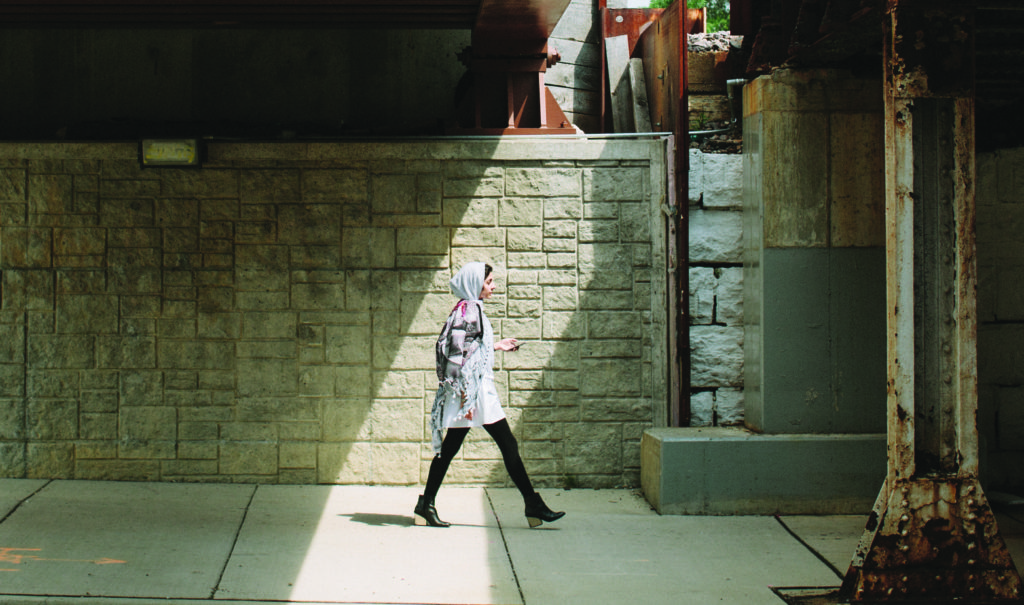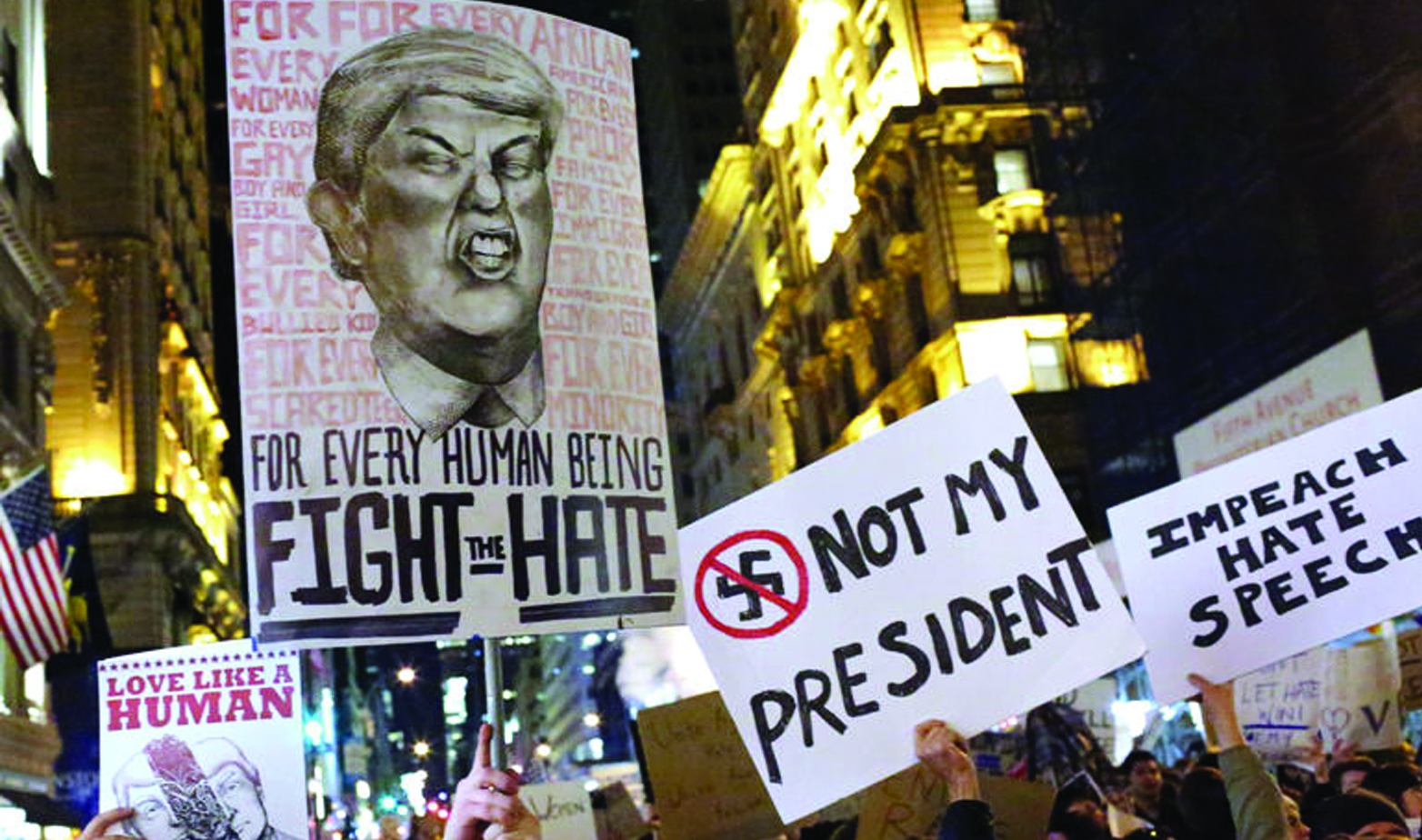1. Ask yourself: who asked me? | Did a person of color ask you to pin a safety pin to your shirt to make them feel more comfortable sitting next to you on the train? Or is this just a visible way that white people have decided to make themselves feel better about themselves and their guilt? While the sentiment is of course appreciated, trust is built through action, not symbols. Rather, mistrust is built through years of institutional oppression that benefits people who look like you at the expense of people who look like me–and who are a lot darker than me. If someone was to get into a confrontation with a Black person on the bus, would a safety-pinner have de-escalation skills? Or would they call the police, the enforcement mechanism of institutional white supremacy? The cause of the death of countless Black people across the country? (Fun fact: the Fraternal Order of Police, the largest police union in the world, endorsed Trump.)
Decisions on what solidarity looks like should come from the people who you want to be in solidarity with.
At the end of the day, you can pin whatever you’d like to your clothes, but allyship means supporting marginalized and oppressed people in ways that they themselves have asked for it. It is not a savior complex of assuming what is needed from the outside and swooping in to deliver. It’s listening to the people who you want to be in solidarity with. It’s following what they’ve already identified as areas where they need allyship, and asked for it.
You can’t claim allyship. You have to earn it.
2. Don’t replicate oppressive systems | While being aware of the first question usually helps avoid this one, (and in fact the contrary tends to be true as well), replicating oppressive systems in allyship has been too excessively present on social media to leave this one out.
A viral facebook status was making rounds and had a list of things that the person who was sharing would do in a post-Trump America. I don’t really remember what all was mentioned on the status, as I stopped reading after number 1: “I will sit next to a hijab-wearing Muslim woman on the bus.”
*flips computer*
This status also comes after only an influx of images of people (usually white men and women) offering to sit next to Muslim women on the train, walk hijab-wearing women home, and say that they will sign up for whatever Muslim registry Trump creates.
But here’s why I flipped my computer and now have to type this post from my phone*:
Muslims–especially hijab-wearing women–in these “solidarity” posts are are being portrayed in the exact patronizing, weak, infantilizing, and helpless way that Islamophobia and Orientalism portrays us. (peep down to 1/2 down the page on my article on Orientalism, Feminism, and Asra Nomani for a refresher on Orientalism and the ways it is used for political/military ends). Why do hijabi women always need someone to sit next to them on the bus but the same is never suggested for queer women? For Latina women? Just remember:
If your solidarity & allyship replicates the same rhetoric that the USA uses to justify military occupation (re: hijab-wearing women as weak and in need of physical saving), you’re doing it wrong.
Also side note: the Muslim registry Trump is talking about already exists. It’s called a no-fly list. It’s called surveillance of mosques. It’s called Countering Violent Extremism grants by the Department of Homeland Security that target Muslims for information gathering and spying. It’s called the fusion center. And you haven’t signed up for any of them. (unless you’re Muslim, then you’re probably already documented somewhere). Rather than walking next to me, show your allyship by donating to a rad new organizing collective of Muslim women in Chicago.
*no computers were damaged in the making of this post
3. Hold yourself accountable. (& Allow others to hold you accountable too) | Being an ally means listening, constantly self-educating, and being open to criticism and accountability. Of course none of us are perfect, and we are all constantly unlearning and learning, but it’s important to own up to your mistakes/lack of knowledge when called out for it.
While “call-out culture” is harmful and toxic, (call-out culture being unfortunately dominant in many activist/organizing spaces and does not leave room for people to learn from mistakes but rather just be called-out and shunned), it’s important to note that being criticized may not always be done kindly or with much patience–and that’s okay.
You shouldn’t rely on those who you want to be in allyship with to teach you about their issues or correct your mistakes. But when they do, it’s important to listen, learn, and change your behavior. Don’t challenge personal experiences. Don’t tell someone the “right” way to express their rage. And never argue against constructive criticism in the way you are performing your allyship. After all, as mentioned in no.1, allyship is earned, not a self-proclaimed title.


